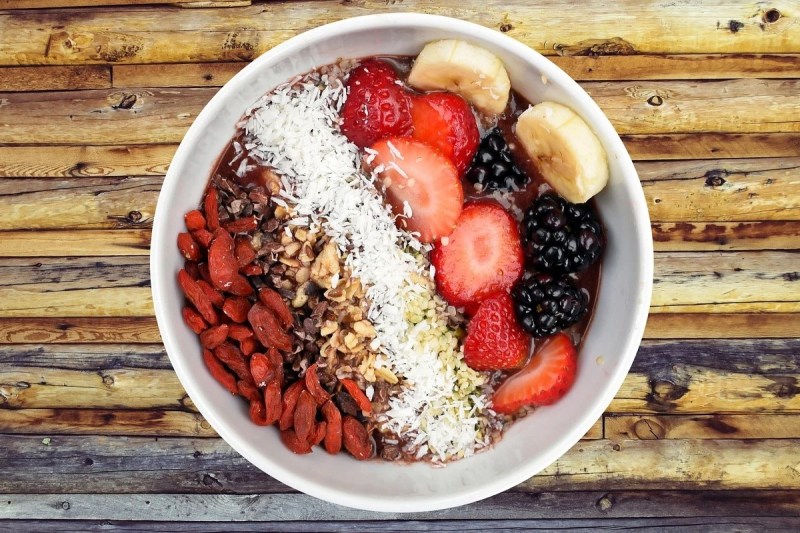Chemical reactions constantly take place in the human body. This is referred to as the biochemical reaction process that is needed to sustain life. It’s also known as metabolism, but this is more to do with chemical reactions in the cells that help convert food into energy that the body can utilize to carry out various bodily functions.
Inflammation is an essential biochemical process that has positive and negative effects on the human body. It can be part of the healing process following infection or injury, or it can cause conditions such as arthritis and other autoimmune conditions. But what is inflammation, what causes inflammation, and how can it be reduced in the body?
What is inflammation?

The body’s immune system produces inflammation. When white blood cells are activated, they’re sent out to kill invaders such as viruses and bacteria, or they can help heal tissue that’s been damaged by injury.
However, this natural biological defense mechanism can also produce an inflammatory response that can cause pain, swelling, soreness, heat, and loss of function. Inflammation can be acute or chronic — or in other words, it can be temporary or longer lasting.
What are common causes of inflammation?

The most common causes of inflammation in the body are infections by bacteria and viruses, which the body sees as invaders that must be destroyed before they can cause sickness or damage. Immune cells are sent out to attack these intruders, resulting in an inflammatory response.
The other main cause is body trauma, where cells are sent out to the site of an injury to begin the healing process. White blood cells also fight any potential invading bacteria that may try to enter the bloodstream via an open wound.
Other common causes of inflammation are autoimmune diseases in which the immune system misfires and attacks healthy tissue. Instead of preventing disease, the immune system itself causes a variety of conditions, such as lupus and multiple sclerosis.
Diet and allergies can also cause an immune response, and both are linked if an individual has food allergies. Here, the inflammatory response can be mild or even life-threatening if it leads to anaphylaxis.
What are the adverse effects of inflammation?

Inflammation, whether acute or chronic, can make you feel unwell, especially if the cause is due to an infection. If the inflammation is at the site of an injury, then the wound can become swollen, red, and painful.
Chronic inflammation can lead to diseases developing in the body, such as type 2 diabetes, Crohn’s disease, and thyroid problems.
Genetics are thought to be only part of the puzzle as to why certain individuals are more susceptible to autoimmune diseases than others. However, factors such as long-term untreated infections and exposure to environmental toxins can also confuse the immune cells and make them attack healthy body cells, which in turn manifests itself in autoimmune disease development.
7 Tips for reducing inflammation

1. Eat more anti-inflammatory fruits, vegetables, and nuts
A good place to begin the battle against inflammation in the body is through diet. Regularly consuming anti-inflammatory foods can help reduce existing inflammation or even prevent it from developing altogether.
An anti-inflammation diet should include green leafy vegetables, such as spinach and kale. Tomatoes contain anti-inflammatory antioxidants, and berries such as strawberries and blueberries are packed full of nutrients such as polyphenols, which help fight inflammation as well.
Nuts, such as walnuts, cashews, and almonds, can also help fight inflammation because they contain beneficial fats and other nutrients like vitamins and minerals. Many nuts also contain antioxidants, but walnuts contain the highest levels of these beneficial compounds.
2. Eat more fish
The benefits of eating fish are well known. It’s not only a good source of protein, but oily, fatty fish such as tuna, mackerel, and sardines also provide the body with essential omega-3 fatty acids, which help boost cardiovascular health. They also act as natural anti-inflammatories in the body by inhibiting certain enzymes that are part of the inflammatory process, such as cyclooxygenase.
3. Take vitamin supplements
It’s not always easy to get all the daily required nutrients from food alone. If you suffer from chronic inflammation, certain nutrients are needed regularly to help keep the condition under control. The most effective nutrients for reducing inflammation are vitamins A, C, and D. The mineral zinc and spices such as ginger and turmeric have shown promise as well.
4. Avoid certain foods
While including certain foods in your diet and boosting your intake of nutrients with supplements can help fight inflammation, certain foods can undo the benefits of both of these if eaten regularly and in large amounts.
Foods that cause inflammation and should therefore be avoided include refined carbs that come from white bread, white rice, cakes, biscuits, and pastries. Fried foods should also be limited, along with sugary foods and beverages, such as soda.
Red meat consumption and, more especially, processed meats such as burgers and sausages should be swapped for chicken and fish instead. Any red meat you eat should not be processed, so a steak or a lean cut of lamb every now and then is probably fine.
5. Take probiotics
A healthy digestive system is vital for optimal health, as nutrients need to be absorbed here before the body can benefit from them. All the above tips can lead to healthy digestion, but probiotics are also extremely useful to the body.
Not only do probiotics inhibit the growth of bad bacteria in the gut that can cause digestive problems and other illnesses, but these beneficial bacteria can also have a positive impact on reducing inflammatory biomarkers, including C-reactive protein.
6. Get plenty of sleep
Most people want to know how to reduce inflammation in the body fast. Getting eight hours of sleep a night is one of the quickest paths to a temporary reduction in inflammation. Sleep de-stresses the body and helps regulate the immune system.
Following a healthy lifestyle that includes a regular eight-hour sleeping pattern can lead to the reduction in inflammation being more than just a temporary fix.
7. Avoid alcohol
Although alcohol in small amounts, particularly in the form of red wine, can potentially have some positive effects on health, too much alcohol consumption can lead to major health problems.
Alcohol not only places stress upon the liver and kidneys, but it can also lead to inflammation in the digestive tract, especially if it disturbs the balance of good gut bacteria. Too much alcohol intake can also lead to an increase in cytokine production, and these cells increase inflammation in the body.
Frequently Asked Questions

What reduces inflammation fast?
Eating a diet rich in anti-inflammatory foods such as fish, nuts, berries, and other highly nutritious foods, along with plenty of rest, are the quickest ways of giving your body a break from the inflammatory process.
What are the five classic signs of inflammation?
The five classic signs of inflammation are redness, swelling, heat, pain, and loss of function.
What is a good drink for inflammation?
Green tea is a rich source of polyphenols. These compounds have been shown to exert anti-inflammatory activity when regularly consumed. They also protect the body from oxidative stress.



